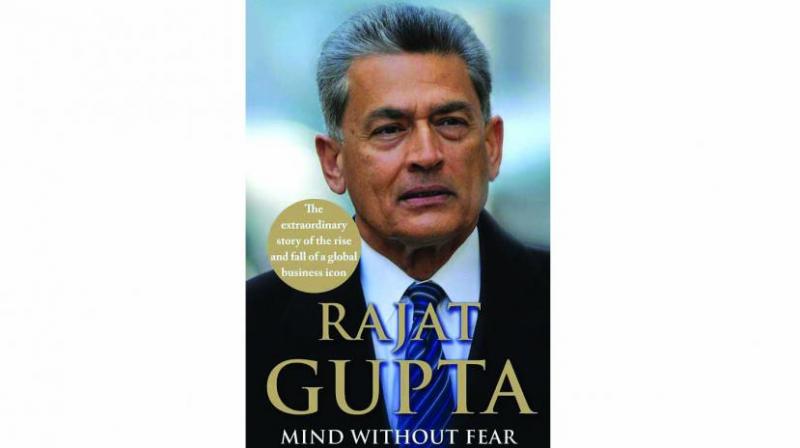The Anarchy of destiny

On the whole, despite its dark moments, my time in prison is most memorable for the camaraderie, courage, and humanity of the people I came to know. Even though the authorities try to ensure that prison does not become a community, most of us look after each other and help whenever we can. This is remarkable given the stress everyone is under and the long sentences most inmates have to endure. As with anything in life, my incarceration had its ups and downs; its good, bad, and ugly; its harsh reality and its tender moments. I would not wish it on anyone, but it was one of the most interesting times of my life. And the most interesting part of all was the part that seemed the harshest and most unfair: a second stay in solitary confi nement, midway through my sentence, lasting for seven full weeks.
Testimony
He who is too busy doing good finds no time to be good.
—Rabindranath Tagore, Stray Birds, 184
May 2012, New York City Sixteen seconds.
“It looks bad,” my lawyer told me. “You hung up from the Goldman board meeting in which you learned about the Buffett investment, and sixteen seconds later you called Rajaratnam. He immediately bought Goldman stock. The next day, he told one of his traders that he received a call right before the markets closed, telling him something good might happen to Goldman.” I was sitting in a small office, high above Sixth Avenue, with several members of my legal team. After a long and depressing winter, spring had fi nally come, but I had no time to enjoy the gentle sunshine and the new life that was bursting forth in my beloved garden at home. I was spending every day at the law offices, preparing to testify at my upcoming trial. I was worried we’d left the preparation too late—it was only when I decided to take over an empty offi ce and show up every day that the lawyers fi nally responded to my requests to rehearse. One Trial of the legal team, Robin Wilcox, would play the role of the prosecutor and grill me on the events leading up to my arrest, sometimes with an audience for added eff ect. These practice sessions were a strange and awkward aff air for me. I’d given countless speeches over the course of my career—addressing students, business leaders, humanitarians, even the UN General Assembly—and I was fully confi dent of my ability to speak clearly and persuasively. I had been unafraid to step on to the biggest of stages, always trusting my insight and instinct. But I didn’t like having other people telling me what I should and should not say. My lawyers stopped me constantly, adjusting and fi ne-tuning my story based on a multitude of possible reactions from judge and jury. I appreciated their thoroughness, but all this second-guessing made me feel disconnected from the simple truth. Unlike most business leaders, I’d never used a speechwriter; instead, I simply wrote what was authentic to me. Often, I would start with a favorite poem, but I couldn’t see the judge being very receptive to me quoting stanzas from Robert Frost, Rabindranath Tagore, or the Bhagavad Gita on the witness stand. Frost would have been appropriate here though, I mused: I would indeed be taking “the road less traveled” by taking the stand in my own defense. One point we returned to, again and again, was the sixteensecond gap. I understood that it looked bad. Clearly the prosecution was counting on the jury thinking so too. The truth was that the government had only a meager collection of circumstantial evidence for their claims against me, but a good storyteller could make it look criminal. Predictably, Preet Bharara’s PR machine had played up the September 2008 Buff ett investment in their press release following my indictment, commenting that the speed at which I ended one call and placed the next made “starkly evident” my eagerness to “lavish” inside information on my so-called good friend, “so quickly it could be termed instant messaging.”

